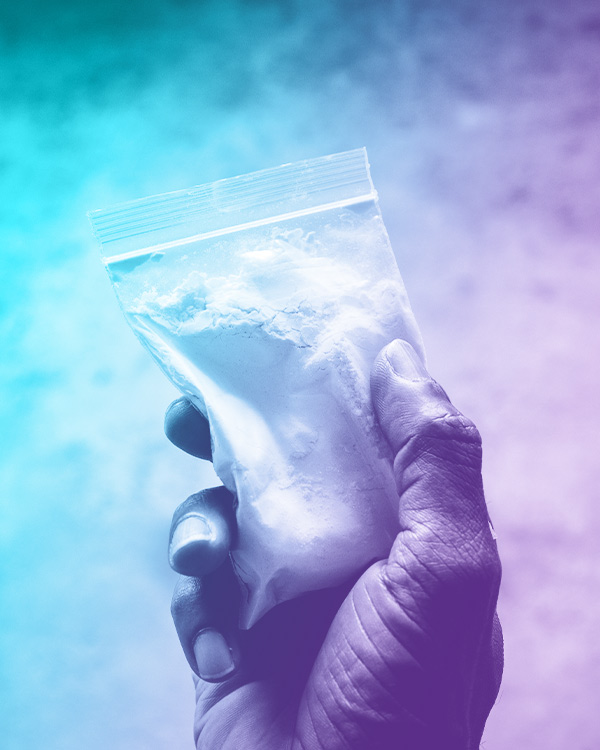Fentanyl Overdose
When you think of substance use, or drugs for that matter, some of the first things that might come to your mind are opioids, cocaine, maybe meth, or marijuana. These are all well-known substances that the average person could probably tell you a little bit about, regardless of their personal experience with them. But what about fentanyl? How much have you heard about that? Fentanyl overdose has been on the rise recently, and one of the first steps to helping lower the number of overdoses here in Florida is to further educate our community about the dangers of fentanyl.

In 2020, over 6,000 Floridians died from overdoses related to fentanyl. Many overdoses involving fentanyl stem from not knowing that it’s mixed into what you’re taking. If we can raise awareness of how to test for fentanyl within substances, or how to spot an overdose, we can help lower these numbers. Here at Clean Recovery Centers, we strive to help our community in more ways than one. One of these ways is by offering informative articles that can help people make informed decisions about their health when they need it most. Let’s talk more about fentanyl overdoses and what you can do if you notice someone experiencing one.
What is a Fentanyl Overdose?
An overdose occurs when there’s too much of a substance in your system for your body to be able to properly handle it. Your liver is a major part of processing toxins like fentanyl, but it can only process so much at a time. When too much of a substance enters the body too fast, it can lead to your body shutting down, which is an overdose.
Fentanyl is a synthetic opioid that’s almost 100 times more potent than even morphine. It’s a cheap substance that still gives the same effects as opioids like heroin, so some drug dealers have been lacing, or “cutting”, their substances with fentanyl to cut back on costs while still delivering the same high. Unfortunately, most people don’t know what’s in the drugs they buy. If they’re unaware of the presence of fentanyl, they could take their regular dose and experience a much harsher reaction due to the potency being higher than what they were anticipating.
There are ways to test if fentanyl is within a substance. Currently, as of January 12th, 2023, lawmakers here in Florida are working on legalizing fentanyl test strips. These test strips could help save lives, allowing people to easily determine if their substances are cut with this potent substance.
How to Spot the Warning Signs of a Potential Fentanyl Overdose
Knowing what to look for when it comes to an overdose can save lives. Because of the Good Samaritan Law here in Florida, you can call for medical aid for a substance overdose without risking legal trouble. If you don’t know that someone’s overdosing, however, you won’t know that you need to call for help.
Fentanyl overdoses can impact the whole body, affecting you both physically and mentally. If you or people around you are partaking in substances, it’s always important to keep an eye out for overdose symptoms so you can get help. Let’s talk about some of the symptoms that come from a fentanyl overdose.
What Symptoms Do You Experience During a Fentanyl Overdose?
Fentanyl, like other opioids, alters the opioid receptors in your brain. Fentanyl on its own can give you feelings of happiness, drowsiness, confusion, and even sedation. These can occur, however, and not be indicative of an overdose, so when do symptoms cross over into overdose territory?
The Dangers of an Overdose
Overdosing on a substance can take normal side effects of the substance and amplify them to dangerous levels. In the instance of fentanyl, symptoms like difficulty breathing can elevate to slowed breathing or stopped breathing altogether. This is just one of the potentially dangerous side effects you might see when someone’s overdosing. Here are some common symptoms of fentanyl overdose you can look out for:
- Pinpoint pupils
- Losing consciousness
- Choking
- Limp, unresponsive body
- Cold or clammy skin
- Slow, weak, or no breathing
- Discoloration on the skin (especially the lips and nails)
For those who might’ve taken fentanyl unknowingly because it was mixed into another substance, you could also experience overdose symptoms specific to that substance. Having multiple substances in your system at a time increases your risk of overdosing.
What to Do if Someone is Overdosing
If you notice signs that indicate someone is overdosing, call for medical help immediately. There are ways to help someone who is overdosing if medical professionals are notified.
One of the common medications used to reverse a fentanyl overdose is Narcan. Narcan is available for free or to purchase in some places in Florida, even at your local CVS or Walgreens. Knowing where you can get access to this life saving medication can be pivotal to ensuring someone’s outcome is positive.
Are There Risk Factors for a Fentanyl Overdose?
While no level of substance use is safe, there are things that can put you at a higher risk of experiencing an overdose. One of the most common ones is taking multiple substances at a time.
Opioids are a depressant, meaning that they slow down responses within your body. This is why slowed breathing and unconsciousness are common side effects of opioid overdoses. If you take a stimulant at the same time as a depressant, the two substances could act like they’re canceling each other out, lowering your perception of both of their effects. This can be deadly, leading you to believe that you’re not as intoxicated as you actually are. Because of this, some people may overindulge without fully realizing it, leading to an overdose.
Understanding the Common Signs Of Fentanyl Overdose
If you notice someone starting to become unresponsive to stimuli around them, expressing extreme drowsiness, and having difficulty breathing, you should be concerned. It can be easy to overlook certain symptoms or side effects that come with overdose, especially fatigue. Just know, you can’t sleep off an overdose. If you have any inkling that someone might be overdosing, it’s best to call for help.
Strong opioids like fentanyl were originally developed to help people, like cancer patients, with pain management. It dulls your perception of the world around you. With a lowered ability to feel pain, someone could unknowingly hurt themselves while overdosing on fentanyl. Things like confusion and sedation can lead to additional potential injuries from falling.
If you think someone might be experiencing an overdose and you’ve already called for help, make sure you keep an eye on them. If they’re still conscious, try to get them to a safe place to sit and wait as medical help arrives.
What Are Your Treatment Options for Fentanyl Use in Florida?
Getting treatment for fentanyl use is possible here at Clean Recovery Centers. We offer every step of the process from detox to inpatient and outpatient treatments. Our medical professionals can help ensure you have a safe recovery that’s catered to fit your needs for your specific and unique recovery plan. We understand that all of our clients are unique, and we want to ensure that you reach your goals in a way that works for you.
If you have any questions about our services, treatment programs, or anything else, don’t hesitate to give us a call today at (888) 330-2532.
FAQs About Fentanyl Overdose
How do people use fentanyl?
Fentanyl is a synthetic opioid that is usually consumed to elicit feelings of euphoria. When taken illegally it’s primarily consumed through nasal sprays or pills.
How can a fentanyl overdose be treated?
Narcan is a common medication used to help block the effects of fentanyl and reverse the effects of an overdose.
What are the signs of a fentanyl overdose?
Some of the common signs of a fentanyl overdose include slowed or no breathing, confusion, pinpoint pupils, cold and clammy skin, and unconsciousness.
Sources:
- https://stjohns.floridahealth.gov/newsroom/2022/07/2022-07-08-public-health-and-safety-alert-fentanyl.html#:~:text=In%202020%2C%20more%20than%206%2C150,overdoses%20caused%20by%20synthetic%20opioids.


